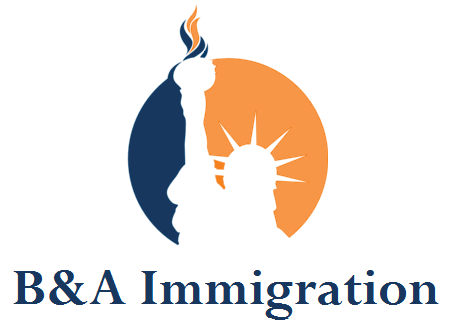Today we have a guest blogger, Patrick Findaro, of Visa Franchise LLC answer our questions about the process of using a Broker to purchase a franchise in the United States.
1. As a Broker, how do you help people who want to move to the US?
There are over 5,000 franchise brands and 700,000+ locations throughout the United States. It can be a daunting task to select the best franchise opportunity without an advisor.
At Visa Franchise, we provide assistance navigating the investment immigration process every step of the way alongside the immigration attorney. Through our client on-boarding procedure, we match your skill set, desired location and investment size to secure the best franchise opportunity.
2. Can you list the steps for us in finding a business to buy?
Although we work with new and existing franchises, we prefer new franchises for our E-2, L-1 and EB-5 direct clients. The investor will skip the negotiation process with multiple sellers and lengthy due diligence process. For more information on the pros and cons of new or existing franchises click here.
Steps for Finding and Investing in a New Franchise
1. Franchise consultation with Visa Franchise
2. Contract Visa Franchise for franchise search ($1,000)
3. Personal skill analysis
4. Franchise Search (3-4 weeks)
5. Franchise Selection
a. Introduction to select franchisors
b. Discovery day with franchisor(s)
c. Conversations with existing franchisees
d. Business due diligence
6. E-2/ L-1/ EB-5 Visa Business Plan (~$2,000 for E-2)
7. Deal Finalization
The complete process varies but takes between 2-3 months. After the franchise is purchased and investor visa issued, the client works with the franchisor for site selection, training, etc.
3. Which factors can make a business more or less worthy of your attention?
First, we like to study the industry of the franchise and growth prospects. Industries in franchising that are expected to continue to experience rapid growth for the coming years are largely in the service-related fields such as:
* Fitness
* Healthcare/Senior Care
* Education
* Pet Care
* Cleaning Services
There are many opportunities across specific sub-segments of industries like quick service restaurants.
As we analyze the particular opportunity these are some of factors we consider:
* Who the franchisor is, what its track record has been, and the business experience of its officers and directors
* How other franchisees in the same system are doing
* How much it's going to cost to get into the franchise
* How much you're going to pay for the continuing right to operate the business
* If there are any products or services you must buy from the franchisor and how and by whom they are supplied
* The hours and personal commitment necessary to run the business
* The financial condition of the franchisor and its system
4. How may a Broker and an Immigration Lawyer work well as a team to improve the experience for clients?
We find the when the Broker and Immigration Lawyer have clearly defined roles on serving the clients, the clients are impressed and satisfied with the service. Visa Franchise role is to act as the business advisor and provide on the ground support with local accountants and other trusted advisors. We also handle the business plan with experience professionals and the franchisor.
The immigration attorney is responsible for everything related to the visa petition and working with the client from an immigration prospective.
We work hand in hand with the attorney on verifying business opportunities that qualify for the E-2, L-1 or EB-5 visa.
When both parties respond promptly to our mutual clients, provide top quality service, and adhere to their defined roles, clients feel secure with the process and recommend friends and colleagues following the visa issuance!
5. What do you see as the main challenges for clients in the process?
Often times, our clients are not currently residing in the U.S. and communication issues can arise if not everyone is organized. Technology like Whatsapp and Skype ease the strains to a certain degree.
Most of the client challenges we see are internal. We have clients where one of the spouses is not 100% convinced on moving to the U.S. In other instances, the family is not sure where in the United States they would like to move or how much involvement they would like in the business from a day-to-day standpoint.
It is encouraged for the immigrant investor to arrange a U.S. trip to visit the prospective business opportunities and meet with local advisors.
For more information on Visa Franchise, visit their site, www.visafranchise.com or contact via email at info@visafranchise.com or phone +1-305-454-7744.
